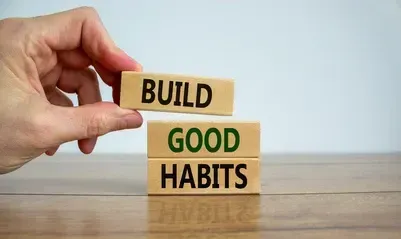Teen Mental Health – Pandemic Crisis

In 2020 the emerging pandemic necessitated a change in our regular lifestyle. It was an ever changing and overwhelming time for many, but none more than for teenagers. The changes to both their social and personal lifestyles created a new set of stressors and tension on top of the existing challenge of just being a teen. The natural progression of establishing independence, separation and growth that happens during our teen years is challenging enough without a pandemic!
With social isolation, schools going from in-person to online, athletic and extracurricular activities canceled and parents staying home to work, has created a new set of challenges. This natural urge for independence has been hindered. Increased social isolation from peer groups and increased togetherness with family has completely changed the dynamics of teen mental and emotional growth in 2020 and beyond. Teens are struggling more than ever with depression and lack of motivation. Without social pressures of schools, teachers and mentors, our kids are falling behind in school. Without peer pressure to be cool or go to college, they are losing sight of future career paths, college applications and even basic hygiene. Without social activities and athletic events taking them outside, they are becoming depressed, unhealthy and lacking sunlight. With all the leniencies and forgiveness of grades due to hybrid schooling and excuses around the 'pandemic' our teens have become lazy and lackadaisical about submitting school work and assignments. All of this is taking a toll on the already fragile teen emotional status and it's greatly impacting overall mental health.
A research study out of the University of Michigan shared details around the changing status of teen mental health:
- 1 in 3 girls and 1 in 5 boys ages 13-19 in the study showed increasing levels of anxiety
- Nearly half the parents surveyed reported new or worsening mental health concerns
- One in four parents sought help for their teen from a mental health provider, with three-fourths feeling it helped.
These statistics are scary! I'm in the trenches and I'm seeing this first hand. Even scarier, kids are really, really good at hiding it. In particular young boys. Even if parents suspect behavior changes, they may not recognize the severity. Understanding a "normal" teenage change versus an underlying mental health concern can be tricky. Below are some signs to watch for:
- Irritability, with or without bursts of anger
- Frequent negative thinking or excessive worry
- A drop in school grades, attendance or not doing homework
- High-risk behaviors, such as using alcohol and drugs
- A change in sleeping patterns - with changes during the day that might include restlessness or excessive fatigue
- A change in eating habits, such as eating more or less than usual
- Difficulty concentrating
- Unexplained aches and pains, such as headaches
- Withdrawal from family, friends and activities they previously enjoyed
If your teen is experiencing one or more of these behaviors, call me, or find them a mental health professional to work with. I can't stress enough the importance of ensuring your teen or young adult as a mentor, coach, auntie or uncle that can listen without personal agenda. Someone they can be honest with and not feel judged. Someone outside of their immediate circle can give unbiased advice. As parents, we are limited on the impact we can have on our children. It really does take a village.
It is important to keep communication open and comfortable with teens at any stage, and not rely on lecturing or dismissing their feelings. Providing safe directed conversations to help your teen open up around their feelings may be challenging. A technique I like to use is talking during an activity, such as walking or hiking. You'll often find that talking is easier when direct eye contact isn't made and an activity is being done. It's also a wonderful opportunity to spend quality time with your teen and take advantage of the same mental health benefits of doing something fun, connective and bonding. Leading by example, will empower your teen to care for their own mental health and will create a strong foundation for a healthy and happy adult life.
Additional Resources:
- Michigan Health National Poll: https://healthblog.uofmhealth.org/childrens-health/national-poll-pandemic-negatively-impacted-teens-mental-health
- www.Joon.com - Tele-therapy specifically targeted for teens and young adults
- Headspace App











